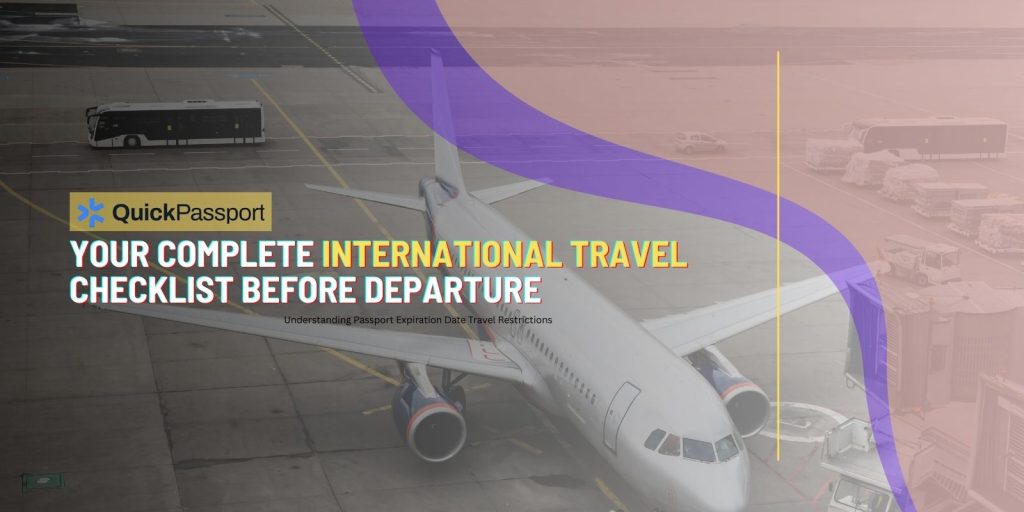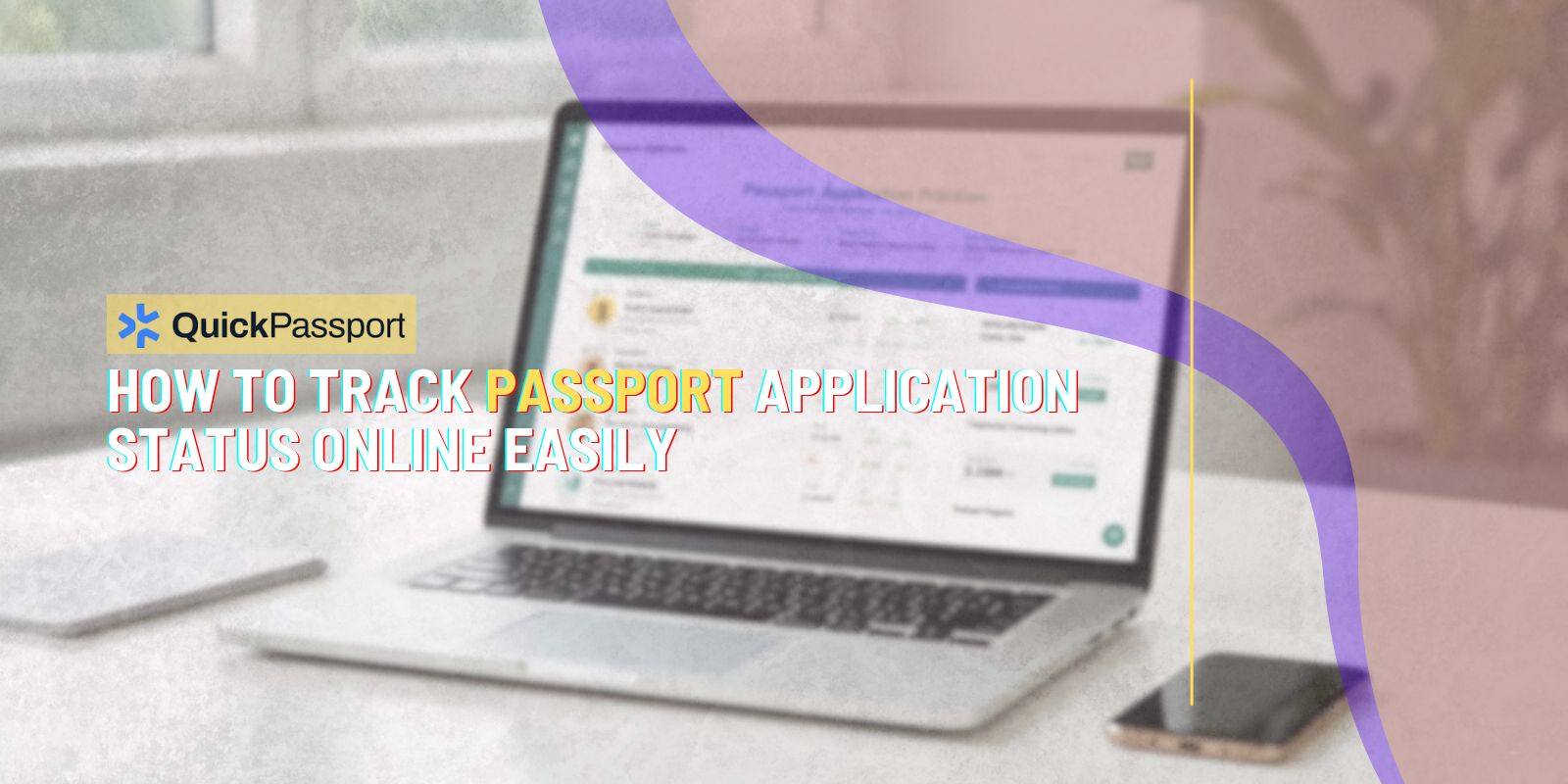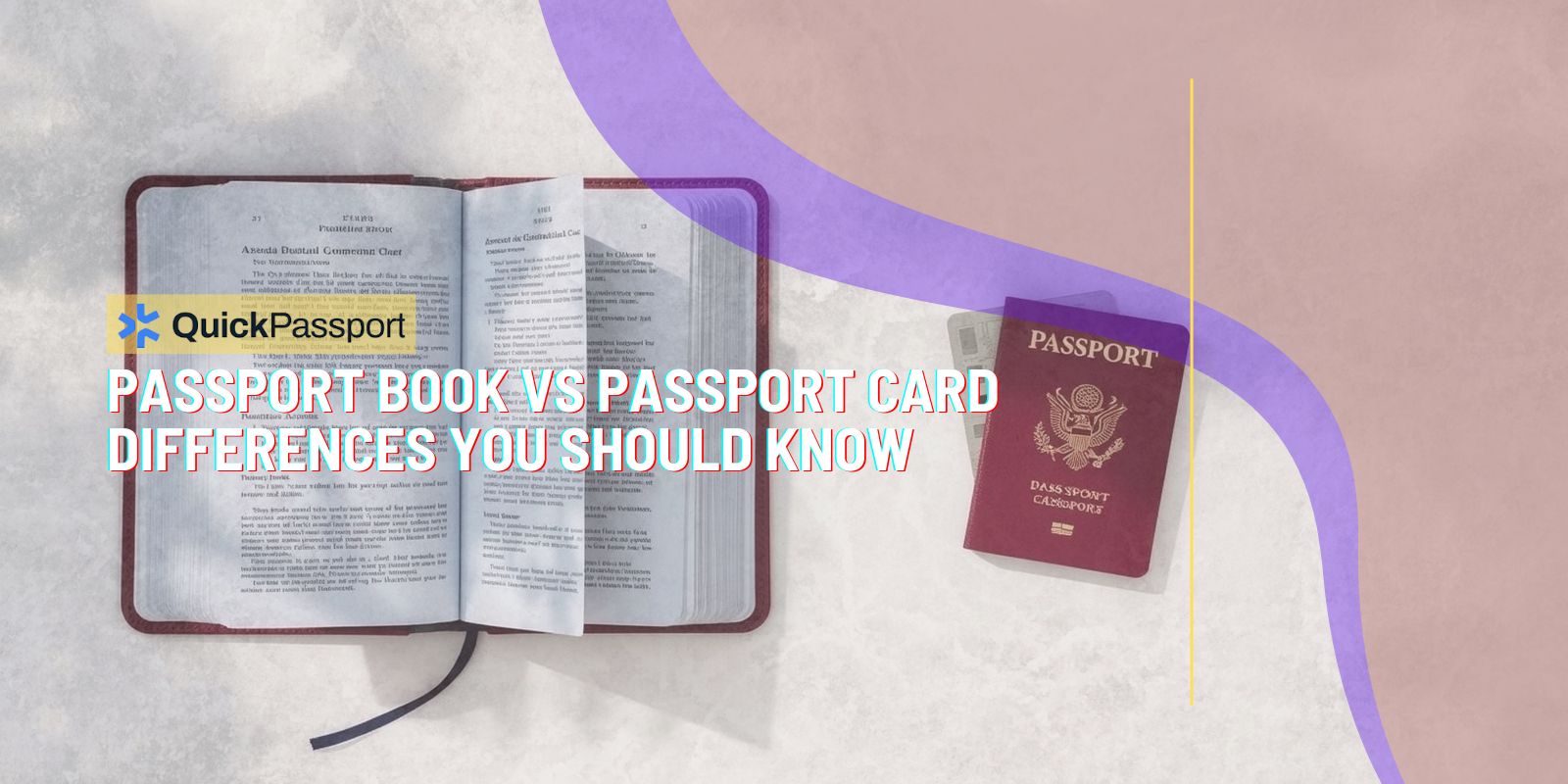Planning international travel involves more than booking flights and hotels. Proper documentation and preparation can make the difference between a smooth departure and unexpected delays at the airport. Whether you’re embarking on your first overseas adventure or you’re a seasoned traveler, having a comprehensive checklist ensures you don’t overlook critical requirements that could derail your trip.
Overview
This comprehensive guide covers everything you need to prepare for international travel, from essential documentation to health requirements and practical considerations. You’ll discover actionable steps for securing proper travel documents, understanding visa requirements, meeting health and vaccination needs, and organizing your finances for overseas travel. We’ll also address common questions travelers face and explain how professional passport services in Miami can streamline your preparation process, ensuring you’re ready for departure with confidence.
Key Takeaways
- Valid passport with sufficient remaining validity is mandatory for international travel, with most countries requiring 6+ months remaining
- Visa requirements vary by destination and should be researched and obtained well in advance of travel
- Health documentation and vaccinations may be required depending on your destination and current health advisories
- Financial preparation includes notifying banks, securing appropriate currency, and understanding international fees
- Travel insurance and emergency contacts provide essential protection and peace of mind during international trips
- Professional passport services can expedite document processing and ensure compliance with all requirements
Essential Travel Documents and Identification
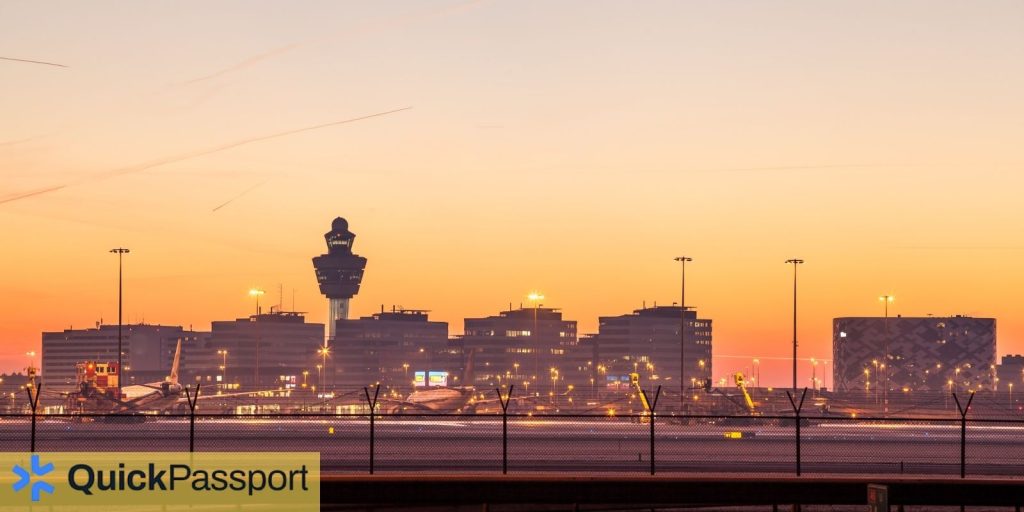
Passport Requirements and Validity
Your passport serves as your primary identification for international travel and must meet specific validity requirements. Most countries require your passport to have at least six months of remaining validity from your planned departure date, while some destinations require even longer validity periods. TheU.S. State Department provides comprehensive information about passport validity requirements for different countries.
Check your passport’s expiration date immediately when planning international travel. If your passport expires within six months of your travel date, you’ll need to renew it before departure. The standard passport renewal process takes 6-8 weeks, but expedited services can reduce this timeframe significantly. For Miami residents, professional passport renewal services can streamline this process and ensure your documents meet all requirements.
Passport pages matter just as much as validity dates. Many countries require at least two blank pages for entry and exit stamps, and some destinations need even more space for visas or special endorsements. Review your passport thoroughly to ensure adequate blank pages remain for your planned destinations and any connecting flights through countries that require transit stamps.
Visa and Entry Requirements
Visa requirements depend entirely on your destination country and your citizenship status. Some countries allow visa-free entry for U.S. citizens for tourism purposes, while others require advance visa applications that can take weeks or months to process. TheU.S. Department of State’s travel advisories provide up-to-date information about entry requirements for every country worldwide.
Research visa requirements immediately after booking your travel, as processing times vary significantly. Tourist visas for popular destinations might be available within days, while business or extended-stay visas often require extensive documentation and longer processing periods. Some countries offer electronic visas (e-visas) that can be obtained online, while others require in-person applications at consulates or embassies.
Transit visas may be required even if you’re not leaving the airport during connecting flights. This requirement varies by country and your citizenship, so verify transit requirements for all countries you’ll pass through during your journey. Missing transit visa requirements can result in denied boarding or unexpected complications during your travel.
Health and Medical Preparation
Vaccination Requirements and Health Documentation
Certain destinations require specific vaccinations for entry, particularly countries in Africa, South America, and Southeast Asia where yellow fever, hepatitis, or other diseases are prevalent. TheCenters for Disease Control and Prevention (CDC) maintains comprehensive travel health information including required and recommended vaccinations for every country worldwide.
Schedule medical consultations at least 4-6 weeks before departure to ensure adequate time for vaccination schedules and any necessary medical clearances. Some vaccinations require multiple doses over several weeks, while others need time to become effective before travel. Keep vaccination records organized and easily accessible, as some countries require proof of vaccination for entry.
Health insurance coverage varies internationally, and many domestic policies don’t provide adequate coverage abroad. Research your insurance policy’s international provisions and consider supplemental travel health insurance for comprehensive protection. Medical evacuation insurance becomes particularly important for destinations with limited healthcare infrastructure or remote locations.
Prescription Medications and Medical Supplies
Prescription medications require careful planning for international travel. Carry sufficient medication supplies for your entire trip plus additional days in case of travel delays. Keep medications in original prescription bottles with clear labeling, and carry a letter from your physician explaining your medical needs and prescribed treatments.
Research medication restrictions for your destination countries, as some common prescription drugs are controlled substances abroad. Certain medications legal in the United States may be strictly prohibited in other countries, potentially resulting in serious legal consequences. TheU.S. Embassy websites for your destination countries provide specific information about medication restrictions and requirements.
Medical device considerations include ensuring adequate supplies for devices like CPAP machines, insulin pumps, or mobility aids. Verify electrical compatibility for powered devices and research local availability of supplies you might need during your trip. Carry documentation for medical devices to facilitate security screening and customs clearance.
Financial and Banking Considerations
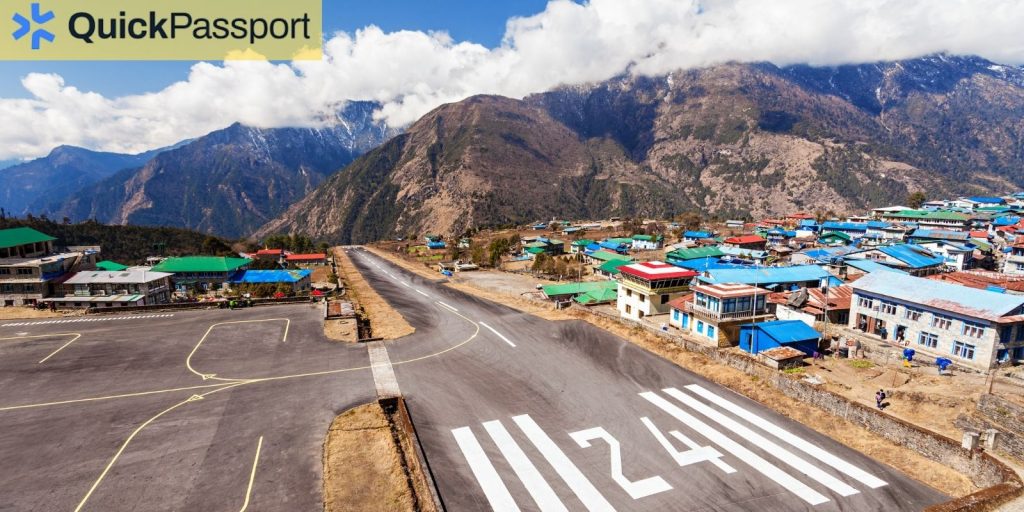
Currency and Payment Methods
Notify your banks and credit card companies about your international travel plans to prevent fraud alerts that could freeze your accounts. Provide specific dates and destinations for your trip, and verify that your cards will work in your destination countries. Some banks require advance notice for certain regions or countries with higher fraud risks.
Research local currency and payment preferences for your destinations. While credit cards are widely accepted in many countries, cash remains essential in many locations for tips, small purchases, and businesses that don’t accept cards. ATMs provide convenient currency exchange, but verify your bank’s international ATM fees and daily withdrawal limits before departure.
Exchange rates and fees can significantly impact your travel budget. Compare exchange rates from different sources, including banks, currency exchange services, and airport kiosks. Airport currency exchanges typically offer less favorable rates, so consider exchanging some currency before departure while planning to use ATMs for additional cash needs during your trip.
Travel Insurance and Emergency Funds
Comprehensive travel insurance protects against unexpected expenses including medical emergencies, trip cancellations, lost luggage, and travel delays. Compare different insurance options to find coverage that matches your travel style, destination risks, and personal needs. Some credit cards include travel insurance benefits, but verify coverage limits and exclusions carefully.
Emergency funds provide security for unexpected expenses or situations where credit cards aren’t accepted. Maintain access to emergency money through multiple methods, such as cash reserves, emergency credit cards, and mobile payment apps that work internationally. Store emergency contact information for your banks and insurance providers where you can access it easily during your trip.
Document important financial information including account numbers, emergency contact numbers, and insurance policy details. Store this information securely but separately from your physical wallet and cards. Digital copies stored in secure cloud storage or encrypted files provide backup access if physical documents are lost or stolen.
Technology and Communication Preparation

International Phone and Internet Access
International roaming charges can be extremely expensive, so research communication options before departure. Many mobile carriers offer international plans or temporary add-ons that provide more affordable calling, texting, and data access. Compare carrier options and consider purchasing local SIM cards or international phone plans for extended travel.
Download offline maps and translation apps before departure to ensure access without internet connectivity. Apps like Google Translate, currency converters, and offline navigation tools become invaluable when internet access is limited or expensive. Test these apps and download necessary data while you have reliable internet access.
Verify that your electronic devices will work with different electrical systems and outlet types. International power adapters are essential for most destinations, and some devices may require voltage converters to prevent damage. Research the specific plug types and electrical standards for each country you’ll visit.
Digital Security and Backup Plans
Protect sensitive information by avoiding public Wi-Fi networks for banking or sensitive communications. Consider using a VPN service for secure internet access, particularly in countries with internet restrictions or security concerns. Public Wi-Fi networks in airports, hotels, and cafes present security risks for personal and financial information.
Create digital backups of important documents including passports, visas, insurance policies, and itineraries. Store these backups in secure cloud storage that you can access from any internet connection. Email copies to yourself and trusted family members as additional backup options. These digital copies can expedite replacement processes if physical documents are lost or stolen.
Research communication restrictions for your destination countries. Some countries restrict access to certain websites, social media platforms, or communication apps. Download alternative communication apps if your preferred platforms aren’t available in your destination countries, ensuring you can maintain contact with family and emergency contacts.
Accommodation and Transportation Planning
Accommodation Documentation
Confirm reservation details for all accommodations and maintain both digital and physical copies of confirmations. Some countries require proof of accommodation for entry, particularly for visa applications or immigration processing. Hotel reservations, rental confirmations, or host invitations may be required at border crossings.
Research check-in requirements and policies for your accommodations. International hotels may require deposits or have different payment policies than domestic options. Verify accepted payment methods and any additional fees that might apply. Some accommodations require passport information for registration with local authorities.
Transportation arrangements should be confirmed and documented before departure. This includes flight confirmations, rental car reservations, train tickets, or other transportation bookings. Keep confirmation numbers and contact information easily accessible throughout your travel. Research local transportation options for ground travel between airports and accommodations.
Local Transportation and Navigation
Research local transportation systems including public transit options, taxi services, and ride-sharing availability. Download relevant transportation apps and verify payment methods accepted by local services. Some countries require specific payment cards or cash for public transportation systems.
International driving requirements vary significantly by country. Some destinations accept U.S. driver’s licenses for short-term visits, while others require International Driving Permits (IDPs) or local licenses. TheAmerican Automobile Association (AAA) provides information about international driving requirements and can issue IDPs for qualified drivers.
Navigation tools become essential for international travel, particularly in areas where language barriers exist. Download offline maps for your destination cities and research landmark-based navigation options. Learning basic directional vocabulary in local languages can help with navigation and communication with local transportation providers.
Common Questions About International Travel Preparation
What documents do I need for international travel?
Essential documents include a valid passport with adequate remaining validity, appropriate visas for your destinations, and proof of onward travel. Many countries require passports to have at least six months remaining validity, and some destinations need specific visa applications completed in advance. Additional documentation may include vaccination certificates, travel insurance proof, and accommodation confirmations depending on your destination requirements.
How far in advance should I apply for passports and visas?
Passport applications typically take 6-8 weeks for standard processing, while expedited services can reduce this to 2-3 weeks. Visa processing times vary dramatically by country, ranging from same-day electronic visas to several months for complex applications. Start passport and visa applications immediately after booking international travel to ensure adequate processing time and avoid last-minute complications.
Do I need vaccinations for international travel?
Vaccination requirements depend entirely on your destination countries and may include yellow fever, hepatitis, Japanese encephalitis, or other region-specific vaccines. Some countries require proof of vaccination for entry, while others simply recommend certain immunizations. Consult with travel medicine specialists or check CDC travel health recommendations at least 4-6 weeks before departure to allow time for vaccination schedules.
Should I exchange money before traveling internationally?
Exchange some currency before departure for immediate expenses like tips, transportation, and small purchases upon arrival. However, ATMs typically offer better exchange rates than currency exchange services, making them preferred for larger cash needs during your trip. Notify your banks about travel plans and verify international ATM fees and daily withdrawal limits before departure.
What happens if I lose my passport while traveling?
Report lost passports immediately to local police and the nearest U.S. embassy or consulate. The embassy can issue emergency travel documents or replacement passports, but this process takes time and may require proof of citizenship and travel plans. Carry digital copies of your passport stored separately from the original document to expedite replacement processes.
How do I handle prescription medications during international travel?
Carry medications in original prescription bottles with clear labeling and bring sufficient supplies for your entire trip plus extra days. Some medications legal in the United States are controlled substances abroad, so research destination country restrictions before travel. Carry a physician’s letter explaining your medical needs and prescribed treatments to facilitate customs and security screening.
What should I do about international phone and internet access?
Contact your mobile carrier about international roaming plans or temporary add-ons before departure. International roaming charges can be extremely expensive without proper planning. Consider purchasing local SIM cards, international phone plans, or using Wi-Fi calling options depending on your destination and communication needs during travel.
Do I need travel insurance for international trips?
Travel insurance provides valuable protection against medical emergencies, trip cancellations, lost luggage, and other unexpected expenses. International medical coverage becomes particularly important since many domestic health insurance policies don’t provide adequate coverage abroad. Compare different insurance options to find coverage that matches your travel style, destination risks, and personal needs.
How early should I arrive at the airport for international flights?
Arrive at least 3 hours before international departure times to allow adequate time for check-in, security screening, customs processing, and potential delays. Some airports or destinations may require additional time, particularly during peak travel periods or for flights to countries with enhanced security requirements. Verify specific recommendations from your airline and departure airport.
What items are prohibited in international travel?
Prohibited items vary by airline and destination country, but common restrictions include liquids over 3.4 ounces in carry-on luggage, sharp objects, and certain electronic devices. Some countries have specific restrictions on food items, medications, or cultural artifacts. Check both TSA guidelines and destination country customs regulations to avoid confiscation or legal issues during travel.
Secure Your Travel Documents with Professional Miami Services
International travel preparation involves numerous complex requirements that can overwhelm even experienced travelers. Professional passport services streamline the documentation process and ensure compliance with all requirements, reducing stress and preventing costly delays. Whether you need expedited passport processing or comprehensive guidance through visa applications, expert assistance ensures your travel documents are ready when you need them.QuickPassport Miami specializes in helping travelers navigate the complex world of international documentation requirements. Our Priority Service delivers passports in 1-2 weeks, while our Expedited Service provides 2-4 week processing for travelers with more flexible timelines. Don’t let documentation delays compromise your international travel plans—contact QuickPassport Miami today to ensure your passport and travel documents are ready for your next adventure abroad.

